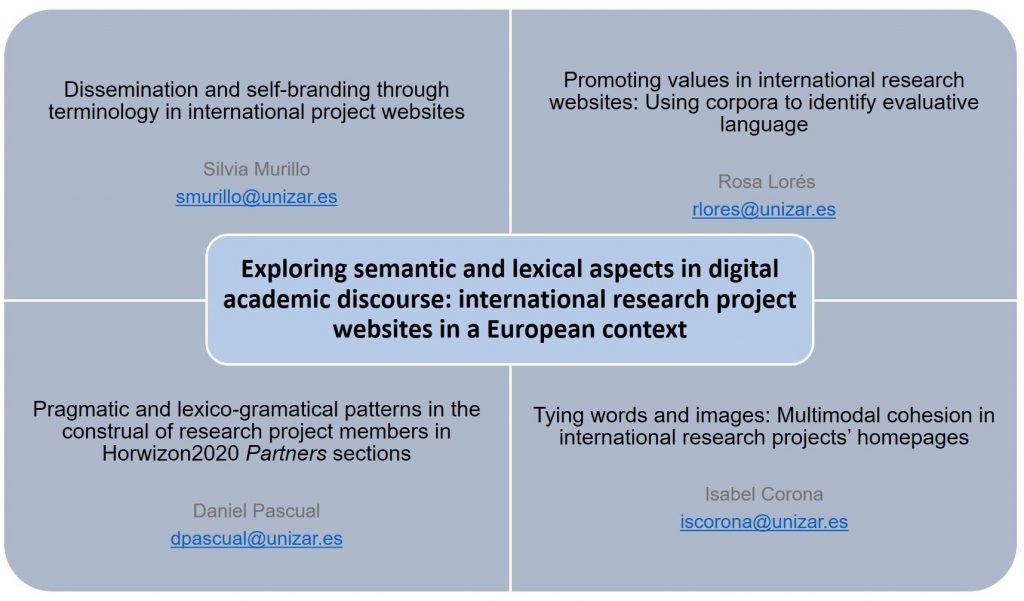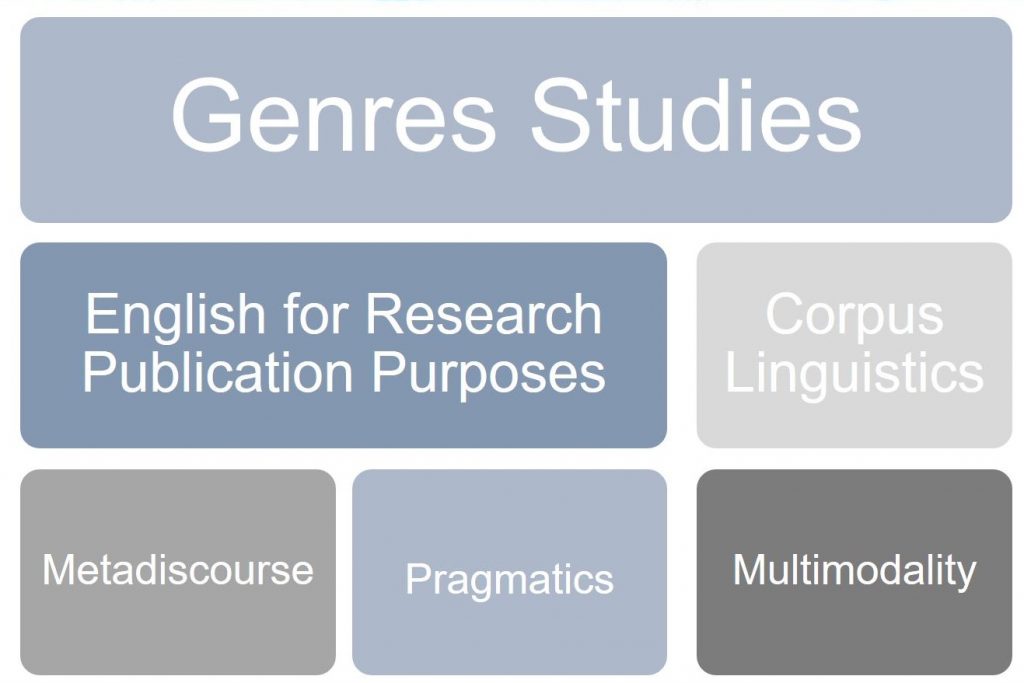We present a thematic panel about the InterGedi project at CLAVIER2021
Last Thursday and Friday, InterGedi participated at the new edition of the yearly conferences organised by CLAVIER (Corpus and Language Variation in English Research), where several members of our research group presented a thematic panel about the latest results from the project.
The conference, titled “Exploring Words in the Digital Transformation Tools and Approaches for the Study of Lexis and Phraseology in Evolving Discourse Domains”, was organised by the Università degli Studi di Modena e Reggio Emilia and included communications in English, French, German and Spanish. A great number of plenary speakers analysed diverse digital phenomena from the discursive and linguistic perspectives of the conference theme, such as Roberta Facchinetti (Università di Verona), Nelya Koteyko (Queen Mary University of London), Julien Longhi (CY Cergy Paris Université) or Ruth Page (University of Birmingham).

A brief introduction about the rationale and purposes of our current project “Visibility and dissemination of scientific research: A linguistic, rhetorical and pragmatic study of digital genres in English as a language of international communication” served to introduce the panel, which was entitled “Exploring semantic and lexical aspects in digital academic discourse: international research project websites in a European context”, as well as to frame the four communications that were delivered by Silvia Murillo, Rosa Lorés, Daniel Pascual and Isabel Corona.

We also delved into the main theoretical perspectives and methodological approaches that we follow in our pieces of research, making an emphasis on the ones that were going to be specifically used and problematised at the panel, like Genre Studies, Corpus Linguistics, Pragmatics and Multimodality.
In all, the CLAVIER2021 Conference meant a very good opportunity to share our most recent findings on digital, academic, scientific discourse. You can check the whole programme of the event here and you can read the abstract of the InterGedi panel here below.
Abstract:
Exploring semantic and lexical aspects in digital academic discourse: International research project websites in a European context
Project websites are the window through which the research of international groups is made visible to academia, industry and society. These sites pursue different —yet interrelated— purposes, mainly dissemination, promotion, and accountability (of the funding invested), and texts and images are thus strategically used. In the different presentations of this panel, we seek to explore several linguistic and visual aspects in the main sections of Horizon 2020 project websites (from the EUROPRO digital corpus, compiled by the InterGedi research group), focusing on their semantic and lexical dimensions. In all the elements analysed, it is necessary to consider the affordances of the Internet and how they enable —and constrain— the different linguistic and multimodal realisations displayed in the research websites.
Specifically, we put the focus on specialised terms, including acronyms, and how they are presented to the readers in the more general content sections (About Us, Objectives, etc.). Further, in these same sections, the most frequent evaluative lexical types are analysed as exponents of the European research values endorsed by international projects. We also deal with pragmatic strategies and phraseology in the Partners sections, in order to unveil how information about research participants —both institutions and researchers— is provided. We finally study the combinations of images and language and their semantic and logical ties, in the News and Events sections, analysing the images and their degree of cohesion with the verbal elements.
Overall, this panel aims to look into the research project website as a complex object of study that requires careful consideration as for its structural and communicative characteristics. By analysing different web sections and linguistic and visual realisations from complementary perspectives, we hope to shed light on researchers’ current digital practices and on effective ways of disseminating international, collaborative research.
